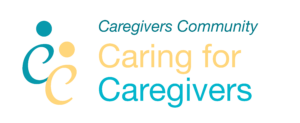** Edited by
Baha and Margaret Habashy
The Challenge
How do you overcome uncertainty?
Coping with the constant uncertainty of a loved one’s health is a challenge for caregivers. This leads to emotional turmoil hindering the ability to plan and have hopes for a better future. Navigating this unpredictable journey underscores the vital role of resilience and adaptability as essential qualities in overcoming the impact of uncertainty in caregiving
Meet Mark and Lisa
Mark and Lisa faced the daunting task of caring for their cancer-stricken son. The constant uncertainty about his health brought emotional storms, making it hard for the couple to dream of a brighter future. Mark, once a planner, found himself grappling with the unpredictability of each day. Lisa, the eternal optimist, felt the weight of the unknown affecting her hopes for their son’s recovery.
Despite the challenges, the couple discovered a wellspring of strength within themselves. Their journey became a testament to resilience and adaptability, as they learned to navigate the twists and turns of caregiving. Mark’s knack for planning evolved into a talent for adapting to the unexpected, while Lisa’s optimism became a beacon of hope in the face of uncertainty.
Through tearful nights and moments of despair, they found solace in each other, forming a bond that strengthened with every trial. In the midst of their son’s battle, Mark and Lisa discovered that resilience and adaptability were not just survival tools; they were the anchors that held their family together, helping them face the unknown with courage and love. Their story, though marked by uncertainty, became a testament to the enduring power of love in the face of life’s toughest challenges.
BIBLICAL INSIGHTS
Isaiah 41:10: “So do not fear, for I am with you; do not be dismayed, for I am your God. I will strengthen you and help you; I will uphold you with my righteous right hand.”
This verse serves as a comforting reminder that God is a constant source of support. It encourages caregivers not to be afraid, assuring them that God will provide strength and help in the midst of uncertainty, reinforcing their ability to face the challenges ahead.
Psalm 46:1: “God is our refuge and strength, an ever-present help in trouble.”
The verse conveys the idea that God is a reliable refuge for caregivers. In times of uncertainty, turning to God provides a sense of security and strength. It highlights the concept of seeking solace and support in a higher power during the caregiving journey.
Matthew 11:28: “Come to me, all you who are weary and burdened, and I will give you rest.”
This verse speaks directly to the weariness and burdens that caregivers may feel. It invites them to find comfort in turning to God for rest and relief, acknowledging the emotional toll of caregiving and offering the promise of divine support.
Romans 15:13: “May the God of hope fill you with all joy and peace as you trust in him, so that you may overflow with hope by the power of the Holy Spirit.”
This verse encourages caregivers to place their trust in God, who is described as the source of hope. It assures them that, through this trust, they can experience joy and peace even in the midst of uncertainty, ultimately overflowing with hope through the guidance of the Holy Spirit.
THOUGHTS AND TIPS
- Seek Support Groups: Example: Join an online caregiver support group where individuals share stories of dealing with the uncertainty of their loved ones’ health. Learn coping strategies and gain insights from those navigating similar challenges.
- Set Realistic Expectations: Example: Acknowledge the unpredictable nature of caregiving. Instead of expecting a set routine, focus on adapting daily plans based on the care recipient’s health, allowing for flexibility amid uncertainty.
- Prioritize Self-Care: Example: Allocate time for self-care activities that bring comfort during uncertain times. Whether it’s a warm bath or a quiet moment with a favorite book, these moments become anchors in the face of uncertainty.
- Communicate Openly: Example: Establish open communication with family members about the uncertain aspects of caregiving. Discuss potential changes in the care plan and collaborate on strategies to cope with unpredictability together.
- Create a Routine: Example: Develop a flexible routine that provides stability without being overly rigid. This allows for adaptability, crucial when navigating the uncertainties of a loved one’s health.
- Explore Respite Care Options: Example: Plan for respite care as needed, especially during times of heightened uncertainty. Having a reliable respite care plan in place ensures caregivers can take a break when the caregiving journey becomes particularly unpredictable.
- Delegate Tasks: Example: Enlist the help of others in handling specific caregiving responsibilities, especially during periods of heightened uncertainty. Share tasks among family members or friends to ensure a collective approach to care.
- Educate Yourself: Example: Stay informed about the potential fluctuations in the care recipient’s health. Understanding the nuances of their condition equips caregivers to adapt their care strategies to evolving circumstances.
- Stay Organized: Example: Use organizational tools to manage the unpredictability of medications and appointments. Keep a flexible schedule and update it regularly to accommodate unexpected changes in the care routine.
- Utilize Community Resources: Example: Explore local resources that specifically address the uncertainties associated with caregiving. Connect with community programs offering support during challenging times to supplement your caregiving efforts.
- Set Boundaries: Example: Communicate boundaries with empathy, especially when uncertainties arise. Clearly express when and how others can offer support, respecting the need for space and understanding during unpredictable moments.
- Stay Flexible: Example: Embrace flexibility as a key strategy for navigating uncertainty. Be ready to adapt plans and expectations, understanding that each day in caregiving may bring unexpected challenges.
- Take Advantage of Technology: Example: Leverage technology tools that enhance adaptability. Utilize apps for real-time communication with healthcare providers, enabling quick adjustments to the care plan based on emerging uncertainties.
- Attend to Your Emotional Health: Example: Prioritize emotional well-being by seeking counseling or support groups that specifically address the emotional toll of uncertainty in caregiving. Addressing emotional needs equips caregivers to handle unpredictability with resilience.
- Plan for Financial Considerations: Example: Anticipate potential financial uncertainties related to caregiving. Consult with financial advisors to create a flexible financial plan that accommodates unexpected expenses or changes in the care recipient’s needs.
- Stay Informed about Legal Matters: Example: Be proactive in legal planning to address uncertainties in decision-making. Ensure legal documents are up-to-date to provide clarity and guidance during unpredictable healthcare scenarios.
- Encourage Independence: Example: Foster independence while acknowledging the uncertainties. Involve the care recipient in decision-making to empower them, even during moments of unpredictability.
- Celebrate Small Victories: Example: Acknowledge and celebrate the small victories in caregiving, such as successfully adapting to an unexpected change in the care routine. Finding joy in small achievements builds resilience in the face of uncertainty.
- Plan for Future Transitions: Example: Anticipate and discuss potential transitions in care as part of the overall caregiving plan. Preparing for uncertainties in health conditions helps caregivers adapt more effectively when changes become necessary.
- Stay Connected Socially: Example: Prioritize social connections as a buffer against the isolation that uncertainty can bring. Regularly connect with friends or support networks to share experiences and gain strength from a community facing similar uncertainties.
At our Community Forum you post your prayer requests, gain spiritual guidance, seek emotional support, and get answers to your caregiving questions. Moderated by qualified Christians, pastors, and healthcare professionals, it is our gift to serve you.
** Note: This blog content was developed with help from ChatGPT 3.5. The story, names and images are for illustration only.






Leave a Reply
Want to join the discussion?Feel free to contribute!